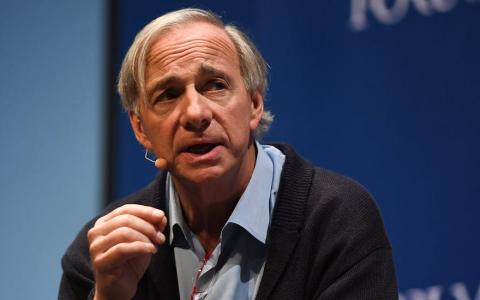
(Sydney Morning Herald) Ray Dalio is turning to history in an attempt to make sense of what he says is a changing world order fueled by the confluence of high levels of indebtedness coupled with low to negative interest rates as well as yawning wealth gaps and China's rise.
"The most recent analogous time was the period from 1930 to 1945," he wrote, adding that while he saw an eventual downturn in the later part of the short-term debt cycle, he had not expected the trigger to be the global coronavirus outbreak. "I felt like an ant trying to understand the universe."
It's not all bad news, though, as the founder of investment management firm Bridgewater Associates - the world's largest hedge fund - says the difficult periods can be like "cleansing storms" that rid the economy of "weaknesses and excesses" such as too much debt.
"They eventually caused adaptations that made the whole stronger, though they typically changed who was on top and the prevailing world order," he wrote in the 5,000-word essay published Wednesday on LinkedIn.
"To me it appears that most things evolve upward (improve over time) with cycles around them, like an upward-pointing corkscrew."
In a separate LinkedIn post also published on Wednesday, Dalio ruminated on the "three big questions" to ask with the coming fiscal and monetary stimulus:
- What is the value of human life relative to a unit of economic activity?
- What is the value of necessities relative to luxuries?
- Who will and should benefit from all the money that is being created?
"The recently-announced changes to fiscal and monetary policy will produce a huge amount of money and credit which will be great for many of those who don't have enough money," he wrote " I worry that this could be the economic downturn that leads us to terribly waste money and/or be at each other's throats unproductively fighting over how to divide the pie."
For history buffs, Dalio has promised to continue sharing what he's learned from his study on the "rises and declines of all the major empires and their currencies over the last 500 years," with updates to come over the next few weeks.
Key Quotes
- "My biggest mistakes in my career came from missing big market moves that hadn't happened in my lifetime but had happened many times before."
-
"I've learned that most things-e.g., prosperous periods, depressions, wars, revolutions, bull markets, bear markets, etc. - happen repeatedly through time. They come about for basically the same reasons, typically in cycles, and often in cycles that are as long or longer than our lifetimes."
- "I believe that the reason people typically miss the big moments of evolution coming at them in life is that we each experience only tiny pieces of what's happening. We are like ants preoccupied with our jobs of carrying crumbs in our minuscule lifetimes instead of having a broader perspective of the big-picture patterns and cycles, the important interrelated things driving them, and where we are within the cycles and what's likely to transpire."
- "The production of money and credit will devalue it, which will reduce or reverse deflation which is a mixed blessing though at the moment more good than bad."
- "We are now facing a choice between having more economic growth with more sickness and death or having less of these. Though I have my own thoughts, I will let others weigh in on that question, which I believe should be openly debated."



